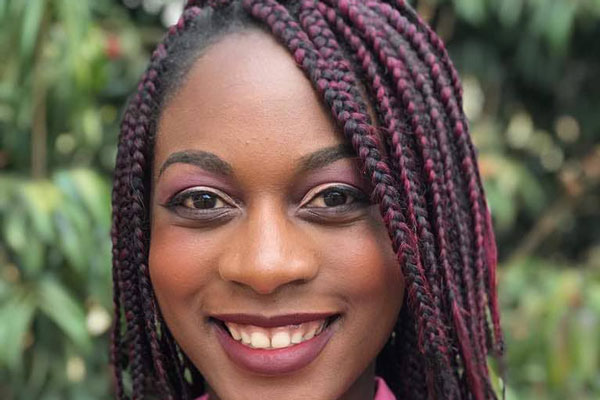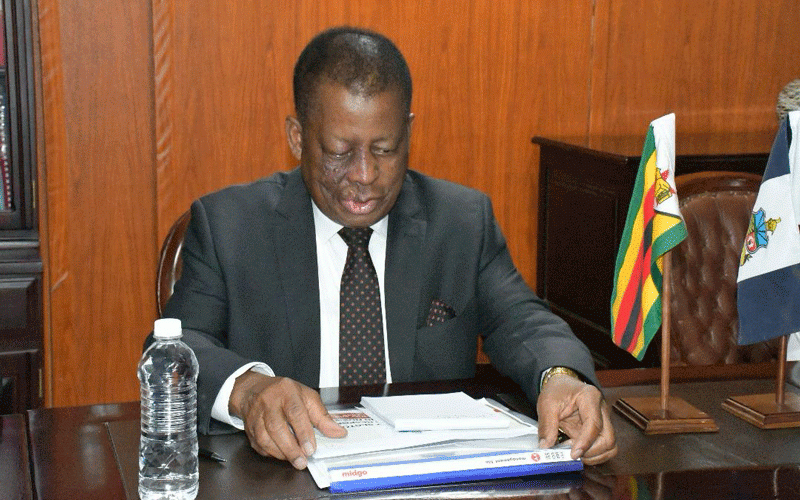
For all the truckloads of sand that have silted Zimbabwe this year, the country’s literature remains the shrub that always shrugs off hard times. The latest Zimbabwean writers to gain regional recognition are Tsitsi Jaji and Tariro Ndoro, who came first and second for the 2017 Dalro Prizes respectively, and Philani A Nyoni, who was recently nominated for the African Writers Awards.
The storyboard with Stan Mushava

The Dalro Prizes, administered by the New Coin journal, were awarded in October for work that appeared in the prestigious South African poetry outlet in 2017. Jaji and Ndoro won for their poems, Profile and Widowed respectively. Jaji, a comparative literature academic living in the United States, pays homage to a fellow poet in her piece, while new voice Ndoro explores the impact of the liberation war on a family.
Nyoni, already variously honoured at home, was gunning for the African Writers Award, which was awarded yesterday, for his short story, Celestial Incest. The story is a celebration of the love Nyoni holds dear for real-life attachment to the muse who tragically passed on earlier this year.
Around this time last year, Tendai Huchu won the Nommo Award for his speculative short story, The Marriage Plot, a genre the acclaimed novelist has been devoted to in his more recent short fiction, notably in his contributions to Omenana, Moving On and Afro-SF. Newer stars Ndoro and Nyoni have also been dabbling in the form and their regional success may be a signal of where Zimbabwean literature is moving next.
Storyboard managed to chat up Ndoro and Nyoni who reflected on their progress as creative writers. Ndoro said she was happy that her hard work had been noticed by the panel.
“When you are a poet, a lot of the work that you do, you are kind of doing in isolation and you are not sure if what you are writing is trash if you are connecting with people,” she said.
She described writing as her inevitable grind. “In one way, I can’t not do it. In another way, I love writing enough to want to be great at it, so I put in the hours. I like reading different poets, different storytellers from different countries and see what they are writing and how that can be an inspiration to me,” she reflected.
- Chamisa under fire over US$120K donation
- Mavhunga puts DeMbare into Chibuku quarterfinals
- Pension funds bet on Cabora Bassa oilfields
- Councils defy govt fire tender directive
Keep Reading
Earlier this year, the creative writing graduate was shortlisted for the Babishai Niwe Poetry Prize, which is awarded to poets that have not yet published a full-length publication.
“There were some great poems in that collection. I did not expect to even make it into the shortlist. I remember I was coming from travelling on the night of the deadline and I just put that poem there like… I think I was chancing, so I was glad to be on that,” she said.
She has also been long-listed for the Black Letter Media Short Story Competition and is variously published in international journals as a poet, essayist and short story writer.
“It’s great that the few things that I have done have been liked by people. I know that the short story that I have published earlier this year, The River Doll, attracted positive reactions from readers. A lot of people were in my inbox, like that’s a great story. I am glad that people are connecting with that,” she said.
“I am trying to complete a poetry collection that’s about language and identity, belonging and unbelonging. But at the same time, I am also writing stories on the theme of dysfunction.
“This year I have kind of dabbled in science fiction. The story that has been long-listed is an Afrofuturistic story and I am glad they liked that. I also have a poem coming out in a Pan-African collection this November called Africa 2035,” she said.
She also pointed out that for new writers to go far, they have to be open to learning, and to push on besides the inevitable letters of “regret” from publishers.
For Nyoni, writing is “a nagging wife that’s chosen for you,” an “external force acting on the writer.” He is willing to attend to his “wife,” whatever hours he may be on call, lest he is consumed by the insanity that haunts those who disregard inspiration.
“It’s a bitter-sweet moment, because the person who inspired it is gone. Nonetheless, I’m grateful her memory survives and I have an angel to wing me over Kilimanjaro, to wash my feet in the Nile,” Nyoni said.
“Yet, as far as career goes, one starts to imagine new horizons, and must summon up energy to go beyond exhaustion to see what lies beyond. I have been given much for which I’m grateful, and much shall be required of me.”
The accomplished author of Mars His Sword also had a word for new writers.
“Never stop learning. I try to write and read every day, and I interact with other writers regularly on my work and theirs. When I finished this story, I sent it to David Mungoshi for critique and revised it to his contributions,” he said.
“Sometimes I can’t find my work and search my email for Tendai Huchu, rework the piece to his suggestions because I spam him regularly. I’ve learnt a lot from Eppel over the years. To be objective with your work and take criticism is vital to growth.”
After a number of critically acclaimed poetry anthologies, the poet is now weaponising his lyrical powers for a novel and his latest short story’s success may be a good signal of the transition to prose.
Feedback: [email protected]











